Table Of Content
Since its inception, the Matter standard, led by the Connectivity Standards Alliance (CSA), has been a transformative force in the smart home and IoT industries. With the release of Matter 1.0 in 2022, the standard established a robust foundation for interoperability across different manufacturers and platforms. This release included comprehensive test tools, an open-source SDK, and a certification program that marked a new era of simple, secure, and reliable smart home products.
As the standard evolved, subsequent updates, including Matter 1.2, Matter 1.3, and the recent Matter 1.4, have built on this foundation with expanded device support and enhanced functionalities. Each iteration has aimed to address the growing needs of an interconnected home, enhance user experiences, and promote sustainable practices.
According to the CSA Annual Report 2023, since the introduction of the first Matter specification, there’s been a surge in new members, with 256 organizations in the Matter Working Group, 4,791 individual members, and 2,156 certified devices. Matter is shaping the landscape of the Internet of Things (IoT), fostering data connectivity, supporting IoT security and privacy, and creating new opportunities for innovation.
The Matter specifications are aligned with the cybersecurity criteria of the U.S. Cyber Trust Mark, promoting enhanced security compliance.
The latest specification, Matter 1.4, released on November 05, 2024, introduces significant advancements in device categories and energy management, reflecting the CSA’s ongoing commitment to innovation. Key features of Matter 1.4 include:
- Enhanced Multi-Admin functionality for simplified device sharing across multiple platforms.
- Support for Matter-certified Home Routers and Access Points (HRAP) to strengthen smart home infrastructure.
- Expansion of energy management capabilities with support for solar panels, batteries, heat pumps, and water heaters.
- Improvements in occupancy sensing and battery-powered device performance.
- Introduction of new device types for mounted in-wall controls, offering more flexible automation.
This progression highlights the CSA’s dedication to refining the ecosystem and ensures that Matter remains at the forefront of smart home technology, paving the way for future developments.
Matter 1.4 – Advancing Smart Home Capabilities
Expanding Energy Management and Sustainability
Matter 1.4 [1] builds upon the energy reporting features introduced in previous versions, enabling smarter energy usage through support for solar panels, battery storage systems, and energy-efficient appliances such as heat pumps and water heaters. These advancements provide homeowners with tools to reduce energy costs and environmental impact, including real-time monitoring and automated scheduling for off-peak energy usage.
Enhanced Infrastructure with HRAP Devices
The introduction of Matter-certified Home Routers and Access Points (HRAP) revolutionizes home network infrastructure. By combining Thread Border Routers with Wi-Fi access points, HRAP devices create unified, secure networks that streamline device connectivity and reduce fragmentation. This innovation lays the foundation for more reliable, interconnected smart homes.
Simplified Multi-Platform Management
With Enhanced Multi-Admin functionality, Matter 1.4 simplifies the management of devices across ecosystems. Users can now enable multi-platform connectivity with a single consent, reducing complexity and improving usability as smart home systems expand.
Advanced Occupancy Sensing and Battery Efficiency
Occupancy sensors now feature customizable sensitivity settings and advanced sensing techniques, including radar and ambient light detection. Updates to battery-powered devices, such as the introduction of the Long Idle Time (LIT) protocol, improve energy efficiency and reliability for intermittently connected devices.
New Device Categories for Greater Control
Matter 1.4 adds support for in-wall mounted devices, such as dimmable switches, and enhances thermostat clusters with new scheduling capabilities. These innovations empower users with greater flexibility and control, creating tailored smart home experiences.
Matter 1.4 cements the CSA’s role as a leader in smart home innovation, delivering seamless interoperability, energy efficiency, and enhanced user experiences.
The Evolution of the Matter Standard Specifications
Matter 1.0 – Laying the Foundation for Interoperability
Released on October 4, 2022, by the Connectivity Standards Alliance (CSA), Matter 1.0 marked a key moment in the Internet of Things (IoT) landscape. With over 550 technology companies collaborating under the CSA’s umbrella, Matter 1.0 introduced a unified, IP-based connectivity protocol designed to simplify the complexity previously prevalent in the smart home device market. This specification ensured that devices from different manufacturers could work seamlessly together, enhancing the user experience through improved interoperability, heightened security, and simplified operations.
The launch of Matter 1.0 included the specification, a robust certification program, and a complete suite of testing tools and resources. These tools enabled manufacturers to bring innovative, compliant products to market quickly. Key features of Matter 1.0 included support for essential smart home product categories like lighting, HVAC controls, security systems, and more, running over foundational network technologies such as Ethernet, Wi-Fi, and Thread—each providing distinct bandwidth and energy efficiency advantages. Thread, in particular, was highlighted for its ability to create a self-healing mesh network that grows stronger with each added device, enhancing the responsiveness and reliability of the entire network.
Furthermore, Matter 1.0 was distinguished by its commitment to security, incorporating advanced protocols like Public Key Infrastructure and distributed ledger technology to validate device certification and ensure the authenticity and security of connected devices. This foundational release set the stage for subsequent updates, aiming to expand the reach and capabilities of Matter-enabled devices across the globe.
Matter 1.1 – Enhancements for Developers and Devices
The release of Matter 1.1 on May 18, 2023, marked a significant evolution in the development of the Matter standard. This update primarily focused on enhancing developers’ ease of use and device functionality. It was the product of extensive collaboration within the Connectivity Standards Alliance, showcasing the collective efforts of hundreds of companies dedicated to refining this transformative technology.
Key improvements in Matter 1.1 aimed to simplify the certification process and accelerate product development times, making it more straightforward for device makers to bring their Matter-compliant products to market.
One of the hallmark features of Matter 1.1 was the enhanced support for Intermittently Connected Devices (ICDs), often called “sleepy devices.” These include battery-operated devices such as contact sensors, motion sensors, temperature sensors, door locks, and switches, which are pivotal in many smart home applications. The updates in this release specifically addressed the power conservation needs of these devices, ensuring they maintain optimal functionality while minimizing energy consumption. The improvements helped reduce instances where devices might be inaccurately reported as offline, thus enhancing device reliability and user interactions.
Furthermore, Matter 1.1 made significant strides in making the specification and open-source SDK more accessible and easier to understand for developers. Clarifications and enhancements in the specification documentation, guided by feedback from early adopters and developers, were implemented to streamline the development process. Additional support was also provided for developers to contribute to the Matter specification, particularly in extending support for new device types.
Testing and certification processes saw enhancements, too, with new automation tools that facilitated easier product pre-qualification. This sped up the time to market and improved the efficiency and comprehensiveness of testing conducted by Authorized Testing Laboratories (ATLs). These updates underscored the CSA’s commitment to reducing development complexity and fostering a more robust ecosystem of Matter-enabled devices.
Overall, Matter 1.1 significantly propelled the Matter initiative forward, aligning with the vision of creating a more secure, connected, and innovative IoT environment. This update enriched the developer experience and paved the way for more dynamic and user-centric smart home products.
Matter 1.2 – Expanding Device Support and Enhancing Interoperability
The release of Matter 1.2 in October 2023 marked a significant advancement in the evolving Matter standard, demonstrating the Connectivity Standards Alliance’s ongoing commitment to enhancing the ecosystem’s device support and interoperability. This update introduced nine new device types, substantially increasing the standard’s capabilities and broadening its applicability in the smart home domain.
New Device Types: Matter 1.2 extended support to include advanced appliances and systems that enrich the smart home experience. Additions like refrigerators, room air conditioners, robotic vacuums, dishwashers, laundry washers, and sophisticated air quality sensors offer enhanced features like temperature control, progress notifications, and air quality monitoring. These allow users comprehensive control over their home environments.
Core Enhancements and Integration Features: Beyond introducing new device types, Matter 1.2 included significant improvements to the core specification and the Matter Software Development Kit (SDK). These updates were designed to simplify the development process for new Matter-compliant products and improve their integration within various smart home ecosystems. Notable enhancements included:
- Interoperable Application Layer: Strengthening the requirements for an interoperable application layer over the Internet Protocol, ensuring seamless interaction between different devices and systems.
- Tailored Features for Markets: Introduction of door locks designed specifically for European markets and updates that support detailed device appearance descriptions, hierarchical device compositions, semantic tags, over-the-air updates, and generic device operational states.
- Enhanced Testing and Certification Tools: The update significantly upgraded the Matter SDK and testing tools, promoting faster product development and market entry. An enhanced open-source Test Harness is now available to test and prepare new product cases for Matter certification.
Enhanced Interoperability and User Experience: With new device types and better developmental tools, Matter 1.2 also focused on enhancing overall interoperability among smart home systems. This version aimed to simplify the user experience by reducing the need for multiple apps and allowing for more centralized control of diverse devices. Additionally, the update facilitated more seamless device communication, enhancing automated home management by enabling devices to make autonomous decisions based on user preferences and environmental data.
Continued Industry Adoption and Growth: The release of Matter 1.2 was supported by active participation from hundreds of industry-leading companies, reflecting strong industry uptake and support. This collective effort has underscored the standard’s growing influence and adoption, which is essential for achieving broader compatibility and ease of use in the smart home technology space.
As the year progressed, more Matter devices were hitting the market, with plans to extend Matter’s reach in the smart home sector through two more updates in line with its bi-annual release rhythm.
In 2023, the Aliro protocol was introduced. It aims to revolutionize access control by replacing traditional keys with mobile devices that unlock doors. Aliro utilizes a point-to-point protocol that employs asymmetric cryptography and credential data definition, ensuring a secure and streamlined user experience across diverse hardware and operating systems.
This protocol supports many use cases and architectures, enhancing interoperability and simplicity in deploying mobile credential solutions as an essential component of identity and access management (IAM) solutions.
Matter 1.3 – Enhancing Smart Home Capabilities with Advanced Energy and Appliance Management
Released in May 2024, the Matter 1.3 specification represents a significant advancement in the Matter initiative. It focuses on enhancing smart home functionality through comprehensive energy management and integrating major appliances. This update reflects the Connectivity Standards Alliance’s commitment to improving energy efficiency and user convenience and expanding the ecosystem’s support for diverse smart home devices.
Energy and Water Management Features: Matter 1.3 introduces robust capabilities for managing energy and water usage, crucial for modern smart homes aiming to optimize resource consumption and reduce environmental impact. The specification includes detailed energy reporting features, allowing devices to provide real-time data on power usage, voltage, and current, alongside energy consumption estimations over time. This functionality extends to Electric Vehicle Supply Equipment (EVSE), empowering users with flexible control over their vehicle charging schedules to capitalize on off-peak rates and reduce carbon emissions.
Advanced Appliance Support: Expanding its appliance range, Matter 1.3 adds comprehensive controls for daily essential appliances, enhancing their functionality and integration within the smart home:
- Microwave Ovens: Users gain the ability to adjust cooking times, power levels, and operational modes, with notifications alerting them to cycle completions or specific cooking statuses.
- Ovens and Cooktops: The update brings precise control over ovens and cooktops, including temperature adjustments, mode settings, and individual compartment management for multi-function ovens.
- Extractor Hoods: Support includes controls for lighting and ventilation settings, helping to maintain optimal air quality in cooking areas.
- Laundry Dryers: Completing the laundry management suite, Matter 1.3 allows for remote control of dryer operations, offering settings for drying modes, temperature adjustments, and cycle notifications.
Enhanced Media and Home Interaction: The specification enhances the interactivity of media devices, such as TVs, through Matter-casting features and improved notification systems that integrate other home devices for a unified user experience. This includes enhanced dialogue support and media casting functionalities that enrich how users interact with content and receive pertinent household notifications.
User Experience and Development Enhancements: Matter 1.3 not only introduces new device capabilities but also improves the overall framework for developers and users:
- Scenes and Command Batching: These features streamline device interactions, allowing users to execute multiple commands simultaneously or set up scenes that adjust several settings simultaneously across multiple devices.
- Network and Debugging Tools: Improvements in network commissioning include more detailed reporting on device capabilities and enhanced debugging tools to ensure smoother setup and maintenance processes.
Matter 1.3 significantly advances the Matter standard by incorporating sophisticated management features for energy, water, and appliances, enhancing user interfaces and developer tools. This update broadens the scope of Matter-compatible devices. It elevates the smart home experience to new levels of convenience and efficiency, marking another step forward in the evolution of interconnected home environments.
Matter Development with New Specs
Specific requirements must be considered when building a Matter device according to the latest specifications. Such a device must be equipped with a compatible radio—either BLE/Wi-Fi or a BLE/Thread combination—and should meet the necessary hardware standards to support the open-source implementation of the Matter software library.
In addition to hardware and software compliance, ensuring that these devices align with stringent security standards is crucial. The Matter specifications are designed to meet the cybersecurity criteria of the U.S. Cyber Trust Mark, thereby promoting enhanced security compliance. This alignment is critical, especially in a landscape increasingly focused on protecting consumer data and privacy.
Additionally, adapting your mobile application is necessary to align with the protocol’s pairing and interaction models. The potential for selecting a new chipset can make the development effort significant, especially when considering variances in radio compatibility and distinct software demands.
Outsourcing this development process to seasoned IoT developers like Krasamo can benefit businesses exploring Matter.
Professionals are expected to grasp the various Thread models, from Border Routers to End Devices, and be adept with command-line interface (CLI) commands to activate the Thread network.
By tapping into Krasamo’s IoT proficiency, businesses can effectively navigate and accelerate their Matter development process.
Matter Development Services
- Matter development—firmware applications, dedicated application layer
- App development—user experience (UX) design of Android Matter apps and iOS apps
- Architecture design—evaluate and select Matter hardware platforms
- Analyze use cases to select and implement functional security aspects—firmware attestation, authentication
- IoT open-source development agnostic mindset
- Compliance with Matter specifications and certification process
- Maintainability of Matter devices with the evolution of Matter revisions
- Adherence to Matter principles





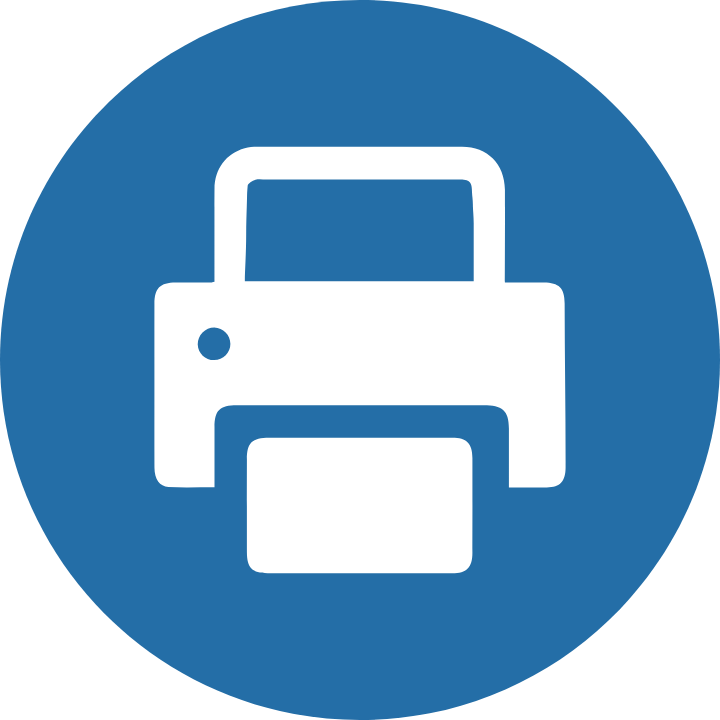
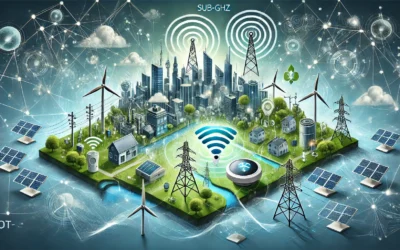
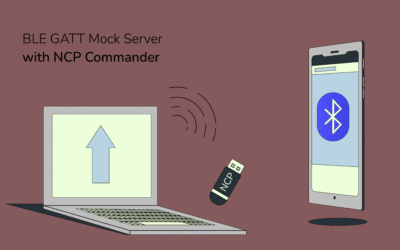
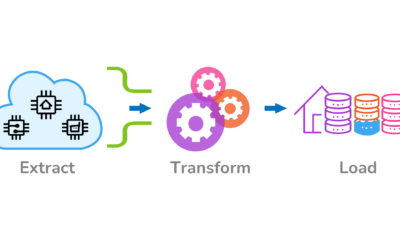

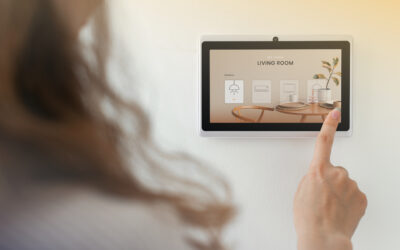

What’s the impact on security with all these new matter enabled devices flooding the market? 🤔💻
I absolutely loved this post! I recently had the opportunity to work with a team that developed Matter enabled devices for a smart home automation project, and I can attest to the game-changing impact of the latest Matter specification (Matter 1.4). We were able to streamline device management and optimize energy consumption, resulting in a seamless user experience. It’s exciting to see how Matter is revolutionizing the industry! 🤩💡
I gotta say, I’m a bit disapointed with this blog post. It’s all hype about Matter 1.4 and Aliro protocol, but what about the underlying firmware development services? I mean, without stable and secure firmware, these fancy protocols are just gonna crash and burn. And another thing, where’s the focus on interoperability between different devices and platforms? You can’t just slap some new protocol on top of existing tech and expect it to work seamlessly. It needs more attention to the fundamental engineering behind it!